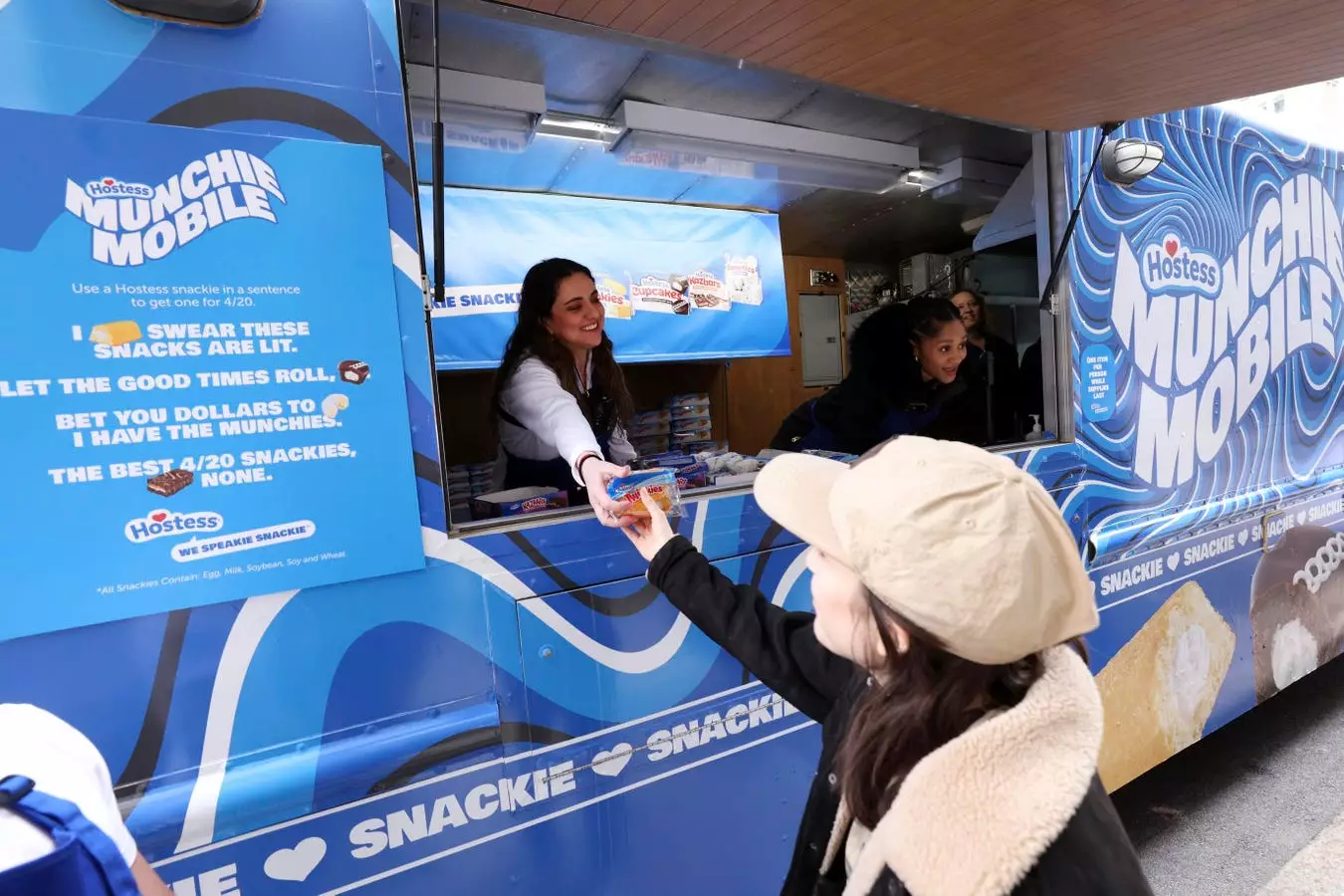The landscape of snack food marketing is shifting dramatically, and perhaps no brand represents this evolution better than Hostess Twinkies. Once the quintessential childhood treat, Twinkies are now stepping into an audacious new era under the ownership of J.M. Smucker, who acquired the brand in 2023 for a staggering $4.6 billion. This hefty investment came during a pandemic-fueled boom for snack foods, a fact that may have contributed to a somewhat inflated sense of security for the brand. However, as sales in the sector start to dwindle—particularly with the emergence of weight-loss drugs disrupting traditional eating habits—Smucker finds itself at a crossroads.
The alluring combination of nostalgia and modern marketing techniques can be a potent elixir, but it requires a fresh approach to capture today’s consumers. In a bold marketing strategy, Hostess is opting to target cannabis enthusiasts with the launch of their “Munchie Mobile,” a promotional vehicle that connects the brand with the cannabis culture that thrives particularly on 4/20—an unofficial holiday celebrating marijuana use. This is strikingly different from the family-friendly image that Twinkies have long paraded around. The shift is not merely a marketing gimmick; it signals a deliberate strategic pivot towards relevance in a rapidly changing marketplace.
Wit Meets Strategy: The Munchie Mobile
The Munchie Mobile is not just a whimsical creation; it’s a calculated move designed to tap into the hearts and minds of cannabis aficionados. Arriving at East Coast dispensaries at precisely 4:20 p.m. each day, the Munchie Mobile culminates with a six-hour event in Brooklyn on April 20th. This is a strategic attempt to plant the seeds of remembrance in the minds of potential customers who may associate their “munchies” with indulging in the sweet, soft treat that is Twinkies. Leveraging humor—“taking the high road”—the campaign risks stepping into potentially controversial territory but also promises to forge new emotional connections with consumers.
The clever play on words is indicative of a larger historical context, where brands often must evolve or perish. Hostess is not merely promoting a product; they are inviting a lifestyle identification. With a nod towards the irreverence often celebrated in cannabis culture, they create brand resonance that could arouse curiosity among a younger demographic that previously may not have had Twinkies on their radar.
The Psychology of Snack Marketing
At the core of this unconventional strategy is the understanding of consumer psychology. The Munchie Mobile, along with its accompanying social media push, encourages consumers to think of Twinkies as an essential part of their post-cannabis enjoyment. This strategy utilizes established psychological theories, such as Robert Cialdini’s principles of reciprocity and liking. By providing free samples at dispensaries, Twinkies occupy a favorable place in the mind of consumers—an approach that can generate both immediate sales and long-term brand loyalty.
Moreover, Smucker’s experiment reflects an ingenious way to ride the wave of cultural shifts. By aligning with the cannabis movement—something increasingly embraced in various societal circles—Hostess is attempting not only to stand out but to evolve alongside changing consumer preferences. This insight sharpens the brand’s identity rather than diluting it, resonating particularly with younger consumers who might view traditional snacks as nostalgic yet outdated.
A Risk Worth Taking?
The decision to embrace cannabis culture undeniably includes risks; there’s the potential of alienating traditional Twinkie fans who may see this shift as an affront to the brand’s wholesome heritage. But this concern feels increasingly outdated, particularly since the brand’s former consumer base is shrinking. The reality is that brands must take calculated risks to stay relevant, and the Munchie Mobile exemplifies a fascinating intersection of humor, cultural relevance, and strategic marketing.
By leveraging this unique moment, Hostess isn’t merely hoping to recapture lost glory; they’re rewriting the narrative of what a beloved brand can embody in modern society. As snack food brands vie for attention in a cluttered marketplace, nurting emotional and cultural connections—especially through humor and relevance—can make all the difference. Bold moves like this can ultimately resurface a classic, engaging not only past consumers but new audiences who wouldn’t have given Twinkies a second glance before.

